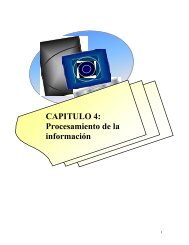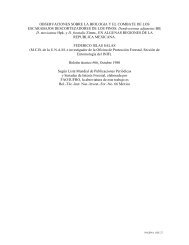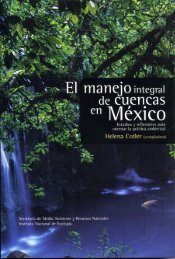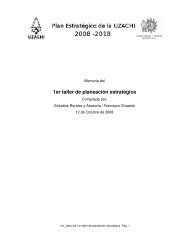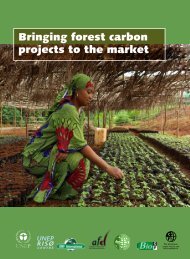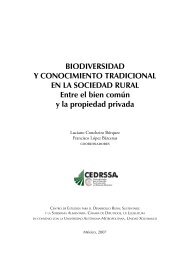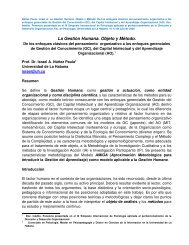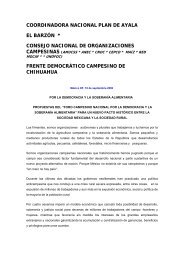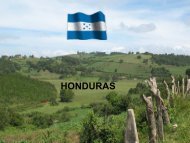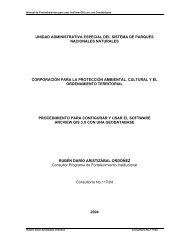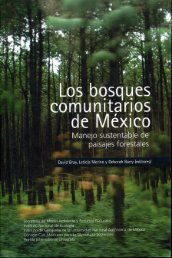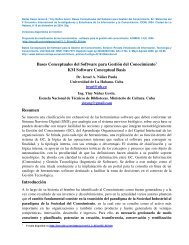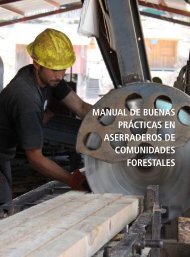STATE OF THE WORLD's INDIGENOUs PEOpLEs - CINU
STATE OF THE WORLD's INDIGENOUs PEOpLEs - CINU
STATE OF THE WORLD's INDIGENOUs PEOpLEs - CINU
- No tags were found...
You also want an ePaper? Increase the reach of your titles
YUMPU automatically turns print PDFs into web optimized ePapers that Google loves.
EMBARGOED UNTIL 14 January 2010<strong>STATE</strong> <strong>OF</strong> <strong>THE</strong> WORLD’S INDIGENOUS PEOPLESNot for distributionand tropical cyclones. Therefore, it is essential that their primary coping tool—mobility—be respectedrather than restricted.In recent years, pastoralists have been making their voices heard at the international level, such asthe United Nations Permanent Forum on Indigenous Issues and meetings related to the Convention onBiological Diversity. United Nations agencies such as IFAD, FAO and UNDP have also, in recent years,improved their understanding of pastoralism and developed working relationships with pastoralists. At theworld gathering of nomadic and transhumant pastoralists in Segovia in 2007, the participants adopted theSegovia Declaration of Nomadic and Transhumant Pastoralists, which welcomed the Declaration on theRights of Indigenous Peoples. Furthermore, the Declaration contains 16 policy recommendations aimedat respecting and promoting pastoralists’ rights. These recommendations include the need to respectpastoralists’ customary laws and leadership, assuring their access to healthcare, education and marketsand their right to cross-border mobility. The Segovia Declaration also highlighted some of the majorconcerns of pastoralists.Despite the crucial contribution of nomadic and transhumant pastoralism to livelihoodsand to national economies and its role in preserving the fragile ecosystems of the planet, inmany countries we are not receiving the necessary attention and support. We are subjectto discrimination and social exclusion. In some countries, we are subject to dispossessionof natural resources, forced or induced sedentarization and displacement, ethnic cleansingand ethnocide, in direct violation of human rights, and as a consequence of conflictsand adverse and ill-designed policies, legislation and development programmes. Bothprivatization and government confiscation (“nationalization”) of common resources usuallylead to land use change having dramatic effects on the overall viability of pastoral systemsand on the environment—both in terms of land degradation and pollution. These policiesand changes exacerbate poverty of people and erosion of biological diversity, force peopleinto migration, and deprive our peoples of their subsistence base, cultural values, spiritualityand dignity. 63Arctic region, including Russia and Northern EuropeIn Greenland, the political and economic changes of the post-war period led to crucial changes in traditionalGreenlandic fishing/hunting culture, as well as in traditional social structures. Industrialization, the transitionto a cash economy, educational mobility and increased urbanization have transformed Greenlandic societyaway from the subsistence production of extended families in small, closed communities and toward wageearning in a more globalized and open society. Today, most people in Greenland, and in the Arctic in general,have adapted their lifestyles, mixing traditional activities with paid jobs. These changed relationships withthe living and the non-living resources affect family structures, diets, consumption patterns, occupations andsources of income, housing, health, education, attitudes, values and aspirations. In 1945, it was estimated that66 per cent of the Greenlandic labour force, out of a population of 21,412 individuals, was involved in huntingand fishing. In 1996, this proportion had decreased to approximately 25 per cent, including people working inthe modern fishing industry. 6463Segovia Declaration of Nomadic and Transhumant Pastoralists (2007)64Andersen and Poppel (2002), 191–216.32 | CHAPTER I



